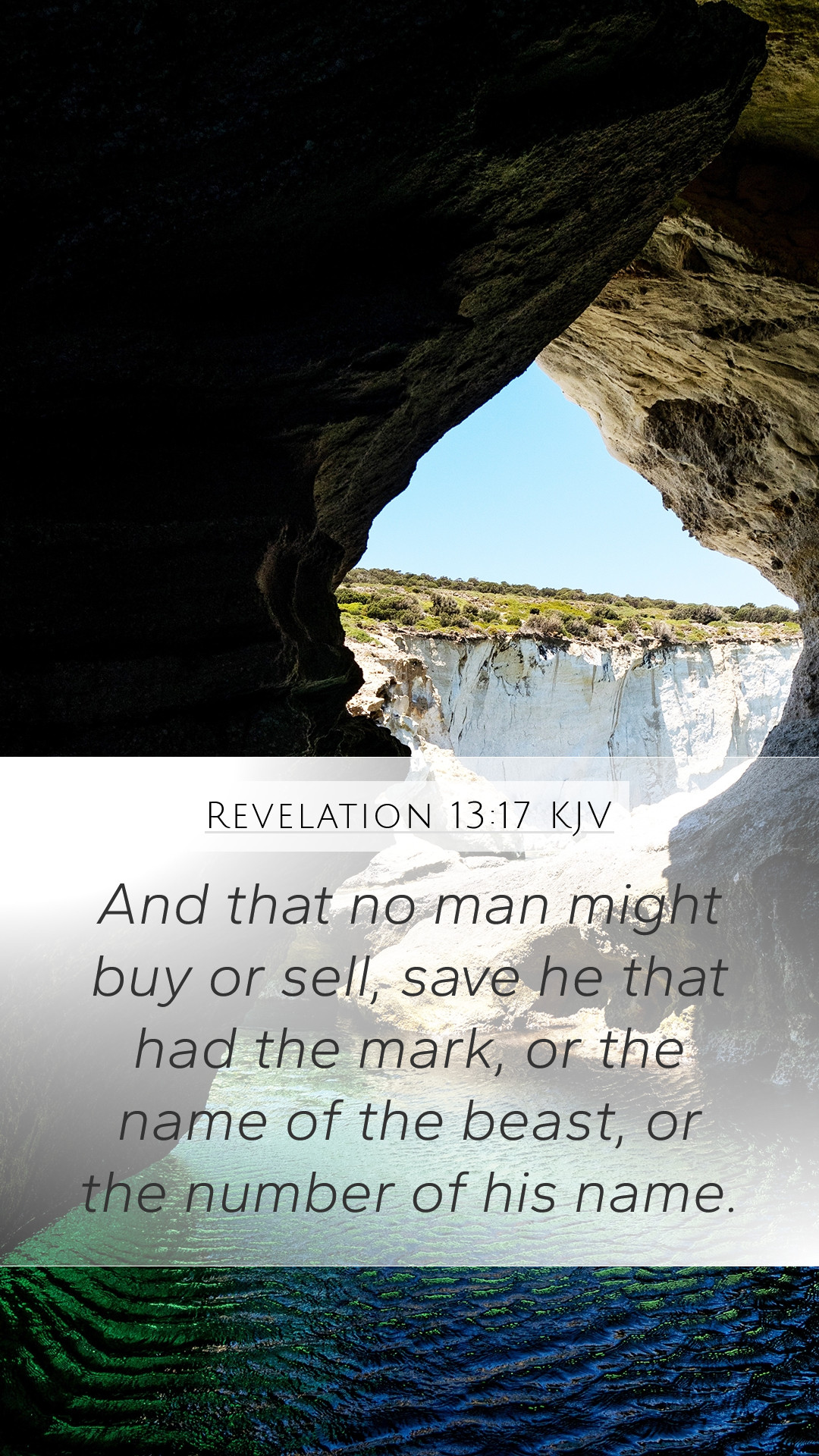Understanding Revelation 13:17
Revelation 13:17 states: "And that no man might buy or sell, save he that had the mark, or the name of the beast, or the number of his name." This verse is pivotal in discussions surrounding end-times prophecy and the mechanisms of control and allegiance during periods of tribulation.
Overview of Revelation 13:17
The Book of Revelation, attributed to John the Apostle, is filled with symbolic language and prophetic visions. In particular, Revelation 13 highlights the rise of a powerful force often referred to as the "beast," which represents oppressive governance against which faithful believers are warned to guard.
Commentary Insights
- Matthew Henry: Henry emphasizes the significance of the mark and its implications for economic power and social acceptance. He interprets 'buying and selling' as a metaphor for total control over one's ability to engage in normal life, illustrating the extent of the beast's power.
- Albert Barnes: Barnes notes that this verse symbolizes the forced loyalty that the beast demands from people. The ‘mark’ represents a physical indication of allegiance and devotion, suggesting a future scenario where true faith may lead to economic hardships and societal exclusion.
- Adam Clarke: Clarke elaborates on the nature of the 'mark' and its implications. He draws connections to historical instances where belief systems resulted in tangible benefits or penalties, indicating that believers might face similar trials in maintaining their faith amid intense pressure.
Theological Significance
The theological implications of Revelation 13:17 are significant in the larger context of Christian eschatology (the study of end times). The mark of the beast is traditionally understood as a sign of loyalty to the antichrist and represents a rejection of God's sovereignty and the ultimate authority of believers who refuse to comply with the beast’s demands.
Historical Context
In its historical context, the verse reflects the early church's struggles with Roman governance and the expectation of a messianic deliverance. The mark could parallel instances of emperor worship in Roman society, where refusal to participate subjected Christians to persecution and exclusion. Recognizing this helps build a comprehensive Bible verse understanding.
Application of the Verse
- As modern believers, understanding Revelation 13:17 encourages vigilance in identifying systems of control that challenge our faith.
- The verse also prompts discussions within bible study groups regarding the ethics of commerce and loyalty in contemporary society.
- Furthermore, it serves as a reminder that true allegiance to Christ may result in social or economic repercussions.
Connections to Other Scriptures
Revelation 13:17 is connected to several other scriptural references:
- Revelation 14:9-10: Discusses the fate of those who accept the mark of the beast.
- 2 Thessalonians 2:3-4: Mentions the man of sin and the nature of apostasy.
- Matthew 24:9: Prophecies regarding persecution for the sake of Christ's name.
- Mark 8:36: “For what does it profit a man to gain the whole world, and forfeit his soul?” focusing on the cost of allegiance.
- Daniel 3:6: The story of Shadrach, Meshach, and Abednego as an example of standing against idol worship.
Conclusion
In summarizing Revelation 13:17, it becomes evident that the essence of this verse transcends mere prophecy. It serves as a call to discernment, encouraging believers to reflect on their faith in challenging circumstances. Understanding the deep Bible verse explanations and the implications for both personal and global faith practices can guide one’s spiritual journey in the modern context.
For those seeking bible study insights, Revelation 13:17 is a key point for bible study lessons focused on end-times theology and integrity in faith.


